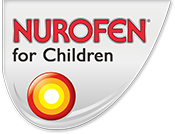How Cold and Flu Affect Children

How does cold and flu affect children?
Adults typically suffer 2-4 colds each year, but our children may get as many as 7 to 10 colds during that time.[1] These viral infections are easily spread between children:
- In autumn and winter particularly, children may spend more time indoors or in schools or nurseries, often playing closely together and spreading cold viruses to each other
- The immune systems of children, particularly the very young, are not as developed as those of adults, so they can't fight off infections as well. This makes them more susceptible to colds.
Colds are usually not serious. However, there is a risk of complications when babies and the elderly have a cold, such as developing a bacterial chest infection. Anyone with a weakened immune system carries the risk of this cold-related complication, too.
How is this different from adults?
Every child (or adult) can experience cold symptoms differently. But here is a comparison of how you may see some different cold symptoms in children under 3, compared with adults and slightly older children
|
Possible common cold symptoms in infants and younger children |
Possible common cold symptoms in adults, and older children |
|
Unable to sleep |
Stuffy, runny nose |
|
Fussiness |
Achy muscles and bones, mild fatigue |
|
Congestion in the nose |
Congestion |
|
Vomiting and diarrhoea |
Sneezing, watery eyes
|
|
Fever |
Low grade fever
|
|
|
Sore throat, scratchy, tickly throat |
|
|
Headaches |
|
|
Mild hacking cough |
|
|
Chills |
|
|
Watery discharge from the nose that thickens and turns yellow or green |
Flu is caused by different viruses to colds, but the symptoms can seem very similar. The most common difference with flu is that the symptoms are more severe, and you may notice fever. [4] We generally feel worse with flu compared to a cold. But although flu can make children and adults feel quite ill, it is usually not serious, however, children are at a higher risk of complications. These may include worsening of an existing medical condition or getting other infections, such as bronchitis, pneumonia and middle ear infections.[5] [6]
How should Cold and Flu in a child be treated differently?
In a very young child, it can be difficult to know what steps to take to treat the symptoms of cold and flu. Solutions like bed rest can be difficult when the child is too young to understand why it’s important, which is why pain relief can go a long way to helping.
In response to illness or injury, substances called prostaglandins are released in the body, which are the sources of pain. Nurofen for Children contains ibuprofen as its main active ingredient, which reduces the production of prostaglandins - helping to reduce fever and bring pain relief. It is effective, fast-working, relieves fever for up to eight hours and has been clinically proven to last longer than paracetamol.
Nothing helps relieve your baby's fever faster or for longer than Nurofen for Children.
Apart from the frequency at which children get colds, and that they may experience higher and more fever than adults, colds and flu in children and adults are very similar. So, although these infections can occasionally make us all feel ill, for most, there is generally little need for great concern. And symptomatic treatment is always available. But if you're ever in any doubt about your child's illness, always seek professional medical help.
* For babies and children from 3 months (weighing over 5kg). Contains ibuprofen. Always read the label.
Information sources consulted for this article:
http://www.nhs.uk
http://www.medicinenet.com
http://www.hopkinsmedicine.org
http://www.webmd.com
[1] http://www.nhs.uk/Conditions/Cold-common/Pages/Commoncoldinchildren.aspx
[2] http://www.hopkinsmedicine.org/healthlibrary/conditions/pediatrics/upper_respiratory_infection_uri_
[3] http://www.medicinenet.com/influenza/pag3.htm
[4] http://www.webmd.com/cold-and-flu/flu-guide/children-and-flu-influenza
[5] http://www.nhs.uk/conditions/flu/pages/complications.aspx
[6] http://www.nhs.uk/conditions/vaccinations/pages/child-flu-vaccine.aspx
